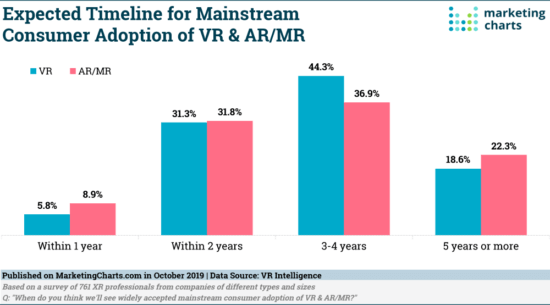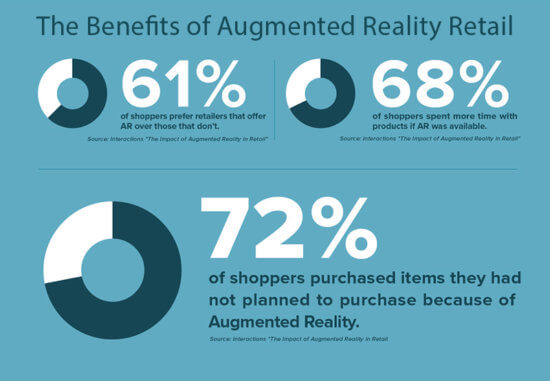Evaluating technology options for innovation in marketing - do you know your Hype Cycles?
If you're involved in marketing strategy development, you will be constantly making judgments and reviewing with colleagues which digital technology innovations are most relevant to your organization. The Gartner Hype Cycle, which is published each year is a good tool to use to find out about both newly emerging innovations and more established marketing technology that could be relevant.
In this article, we compare different examples of the well-established Gartner Hype Cycle tools which serve to highlight the adoption of new technology services within marketing technology.
Gartner publishes many different hype cycles reviewing the adoption curves for different types of technologies, but as a digital strategist, I am most interested in those focusing on digital marketing technologies. A summary of the report with the infographic is published annually and I have been monitoring them and sharing them for over…
Practical ideas for you to use including how to use ChatGPT
Each year, for the last 10 years, or so, I have identified the latest trends in digital marketing and forecast what the major trends will be in the year ahead. The aim is to help marketers and business owners find new marketing ideas, review their budget investments and put together their plans. There’s always a lot of interest as businesses consider tactics they can deploy to gain an edge by using some of the latest techniques.
This review covers the latest developments in digital marketing across the many digital marketing channels tools that businesses can use shown in the visual below based on our RACE digital marketing framework. I cover ChatGPT at the end of the article. We developed this to help businesses develop a robust approach to developing integrated digital marketing strategies across 25 key activities which we define as…
E-commerce inbound marketing means attracting customers to your online store with engaging and relevant content to increase sales and conversions
E-commerce has rocketed over the last 12 months - and with it, inbound marketing tactics by savvy e-commerce marketers have picked up the pace, competing to attract customers to their site and win that sale.
While a healthy e-commerce marketing strategy will always include a mixture of outbound and inbound marketing, with demand and competition peaking in 2021, there's little doubt that now is the time to focus on your e-commerce inbound marketing strategy to increase your return on investment.
The numbers speak for themselves with e-commerce purchases accounting for 16% of all sales in the US in Q2. In fact, 9 countries were predicted over 20% growth in e-commerce post-COVID, the Asian Pacific market alone forecast $2,448.33 billion of E-commerce sales.
With that in…
AR gives you another tool in your belt when it comes to driving sales and enhancing brand value through mobile devices
Today's markets are driven more and more by the needs and desires of consumers. As technology advances, those desires change and a brand must keep pace with those changes.
Augmented reality (AR) is an emerging trend within marketing and sales strategies, one that allows brands to give their customers unique experiences with the convenience of tapping into their mobile devices.
Mobile has become one of the most significant media types through which consumers interact with brands and make purchase decisions. AR gives you another tool in your belt when it comes to driving sales and enhancing brand value through mobile devices.
1. Let customers try before they buy
Potential customers have always wanted to try products before purchasing them. Fitting rooms, cosmetic samples, automobile test drives, and many other related…
The benefits of using Augmented Reality technology for better customer engagement
All of us remember the famous Pokemon Go game and its insane popularity - but can marketers use the same technology to attract users and make them buy more?
Apparently, the answer is yes. AR has proven to be a true gem for marketers as it significantly boosts customer engagement and the level of interest for a product.
Research by Deloitte states that most of the mid-market companies already experiment with AR to improve user experience and the global AR market is expected to reach about $75 billion by 2023.
[caption id="attachment_149371" align="aligncenter" width="640"] [Image Source][/caption]If used right, AR technology can significantly increase the recognition of your brand among the users and engage them in a…
"Brands have realized they need to create a compelling narrative that excites, surprises and inspires consumers, potentially through 'immersive' experiences" Bart Visser, Director of Brand Marketing Spark Networks SE
In preparation for the Brand Marketing Summit Europe, we are continuing with our interview series. Our previous interview featured Michal Szaniecki, Managing Director SEAT and CUPRA, Volkswagen Group. In this interview, we speak to Bart Visser to better understand what he sees as the biggest and most exciting marketing opportunities in 2019.
To see the full range of incites from the speakers of the summit, take a look at Incite Group's exclusive whitepaper.
Bart Visser is responsible for all global Brand Marketing efforts for Spark Networks SE, one of the global leaders in online dating. Among its top brands are EliteSingles, Christian Mingle, Jdate, eDarling, JSwipe and Attractive World. Operating in…
The latest trends and innovations using VR / AR and interactive video to keep an eye on in 2018
Video is by no means a new marketing innovation, but it seems to be on the rise and considered the number one content consumption channel. It is still regarded as a highly popular method to distribute content to increase engagement rates across all digital channels. According to HubSpot's State of Inbound 2017 report, video is the main disruptor for marketers, yet YouTube and Facebook video are the 2 most popular distribution channels that marketers want to introduce into their strategy in the next 12 months.
However, it is important that these trends that are most popular are developed further with new and innovating ways to keep consumers engaged.
[si_guide_block id="79375" title="Download Member Resource – Marketing Technology and Media Innovations guide" description="The…
Chart of the day: In a recent study on customer sentiments on virtual reality, by Ipsos MORI, they find that over 3 in 10 don't care about VR at all, and many think VR is just for gamers
VR devices are currently too expensive according to 66% of respondents and the majority (86%) would like to try VR before buying.
The key findings as shown in the chart above include:
Over half have an underground of what VR is and just under half are interested in experiencing it
6 in 10 believe VR experiences are made just for gamers
Most find the devices are too expensive even though there are cheaper options available
The research also found that over 6 in 10 (63%) of 16-24 year olds are positive of the technology, compared to just over 3 in 10 (33%) of those aged 55-75.
Over half of…
Stay ahead of the curve with these essential 2017 retail trends
There are lots of exciting new digital technologieis for retail marketers to explore next year, including: chatbots, social commerce, Google Beacons and virtual/augmented reality.
Retail marketers have had to be patient over the last few years. We all know the future lies in creating a seamless shopping experience between online and offline consumer habits. And we know personalised, targeted messages are the way to guide users from one habit to the next.
The problem is, we don’t really have the technological means to do all of this in an integrated way yet. Despite all the talk and ambition, the necessary technology isn’t readily available, affordable or practical enough for retailers to implement on a wide scale.
However, 2016 has felt like a genuine turning point for retail marketers. We’re almost there. 2017 could finally be the year retail marketing comes of age.
Chatbots are…
Virgin Holidays Case Study: How to use virtual reality to show off your product
Particularly relevant for travel retailers, virtual reality provides an opportunity to showcase their product in a way that was previously impossible. Perhaps it's the best new technology for the sector since the jet engine! This first example shows how can now take your customers under the sea, to the top of mountains and onto the sunniest of beaches without them having to leave the branch, as this 360° video from Qantas shows.
The Virgin Reality initiative
Many travel brands have started experimenting with using VR to let customers 'try before they buy', and have done so by creating 360° videos which viewers can pan around. We've got to admit, they're pretty darn cool, and a lot of fun. But technically, they aren't virtual reality. Virtual reality means being able to look around the virtual world…






